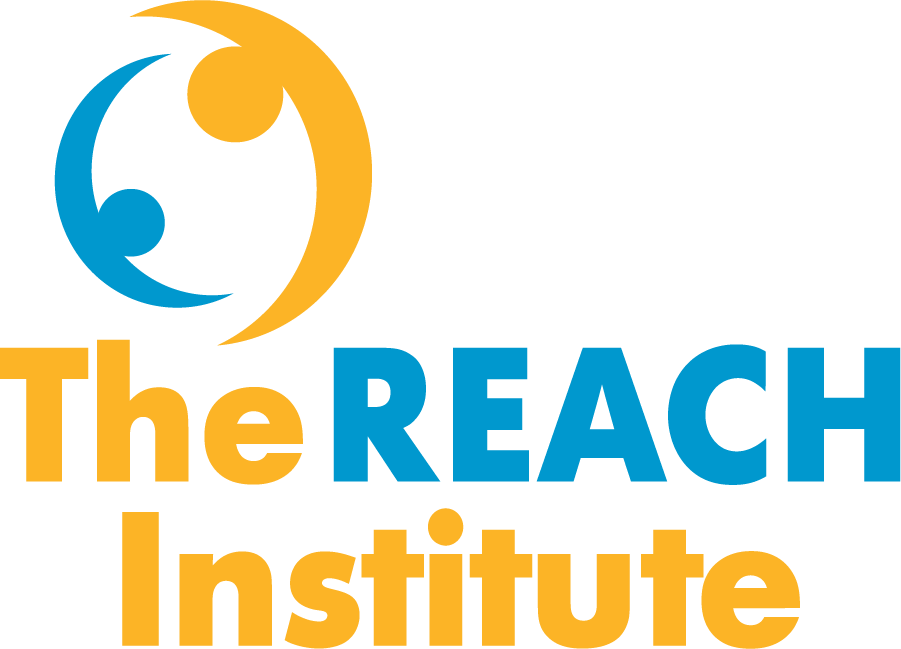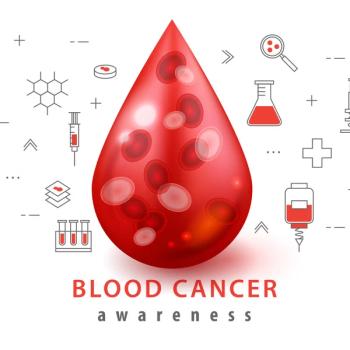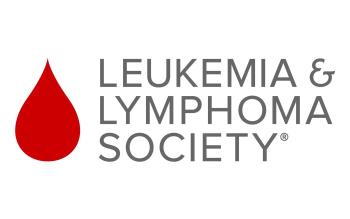
An interview with Lisa Hunter Romanelli, PhD, CEO, The REACH Institute

Could you tell me more about your background?
I am a practicing clinical child psychologist with expertise in cognitive behavioral therapy and years of experience in mental health advocacy and intervention. I have a long-standing interest in mental health that was initially triggered by the difficult experience of seeing my mom suffer from a major depressive episode while I was in high school. At the time, I coped by learning as much as I could about depression and mental health. Thankfully, she was able to receive effective treatment and eventually recovered. I remained interested in mental health, however, and eventually went on to major in psychology in college and receive my doctorate in clinical psychology.
I joined The REACH Institute shortly after its formation in 2006 and currently serve as its Chief Executive Officer. REACH, which stands for Resource for Advancing Children’s Mental Health, is devoted to ensuring that the most effective, scientifically proven mental health care reaches all children and families, especially those who have the least access to care because of economic, geographic, and/or systematic disadvantages.
Throughout my career, I’ve been focused on how I can have the greatest impact on improving the mental health of children. While I maintain a small clinical practice and relish the opportunity to work with children and teens, there is a limit to how many individuals I can impact directly. Ultimately, I joined REACH in order to have a large-scale impact on the lives of children.
How did the idea for the organization come together?
The idea behind REACH arose from twin gaps impacting children’s mental health care. First, there are simply not enough mental health providers, especially in our most vulnerable communities, to meet the needs of our children. Imagine the frustration of having a diagnosed mental health issue impacting your everyday life, and you cannot access care for months or even a year. For children in most communities, wait times remain stubbornly long.
The second gap is the lengthen of time between the development of scientific knowledge about mental health and the application of that knowledge to help children and teens. Researchers have estimated that it takes about
REACH’s answer to closing these gaps is to bring proven scientific knowledge and evidence-based practices directly to the health care providers who can use it to change lives. We do this by providing intensive, interactive, and sustained training to mental health clinicians, parent advocates, school-based providers, and primary care providers (PCPs). This approach serves to both reduce the time it takes for scientific breakthroughs to make it into clinical practice as well as to increase the number of health professionals equipped with the skills and confidence to deliver effective mental health care.
For example, most PCPs receive little to no training on mental health during their medical education yet are frequently being asked to provide care to their patients with mental health issues. Without mental health skills, they are quick to refer patients, regardless of severity, to specialists, adding to the lengthy wait times for care.
REACH knows that PCPs can and do play a critical role in our mental health system, and by empowering them with skills in this area, we can greatly expand access to quality care. Since our founding in 2006, I’m proud to say that we’ve trained over 8,000 PCPs on mental health. We’ve made remarkable progress, and I know there’s so much more impact we can and will have in the years ahead.
What has been your favorite memory working for the organization so far?
Every time I hear from a provider who was able to help a child suffering from anxiety, depression or another mental health concern because of REACH training, I’m thrilled.
Another high point occurred last year when REACH was awarded a three-year grant from the Draper Richards Kaplan (DRK) Foundation. DRK is a venture philanthropy firm that funds organizations addressing a critical social or environmental issue and prioritizes organizations that have evidence of focused alignment, engage in systemic social change, and use data-based decision making. Receiving a DRK grant has been especially meaningful because it validates that REACH is designed to realize our impact at scale.
What are the organization's core services?
REACH’s core services are its training programs for PCPs and mental health clinicians. Our flagship program, Patient-Centered Mental Health in Pediatric Primary Care (PPP), equips pediatric primary care providers with the latest evidence-based practices and therapies to diagnose and treat mental health disorders. Led by national leaders in child psychiatry and pediatrics, the course teaches PCPs how to use evidence-based practices to assess, manage, and treat common mental health issues in children.
Course participants learn to correctly identify and differentiate among pediatric behavioral health problems such as depression, ADHD, bipolar disorder, anxiety states (including PTSD), oppositional and conduct disorders, and psychosis. They also learn to effectively manage psychopharmacology, with instruction on how to select medications, initiate and taper dosages, monitor improvements, and identify and minimize medication side effects. Finally, participants learn how to create and implement a treatment plan by mobilizing existing resources like family members and school personnel.
REACH also offers the following courses:
- Adult Behavioral Health in Primary Care
- Child/Adolescent Training in Evidence-Based Psychotherapies
- Cognitive Behavioral Therapy for Anxiety in Pediatric Primary Care
- Cognitive Behavioral Therapy for Depression in Pediatric Primary Care
- Addressing Trauma in Pediatric Primary Care
- Practical Behavior Management in Pediatric Primary Care
Have you faced any challenges in your sector of work recently (and how did you overcome those challenges)?
The challenge REACH was created to address is still a challenge today: there are not enough trained mental health professionals to serve our young peoples’ needs.
Consider these facts:
- According to the
Health Resources and Services Administration , 123 million Americans with mental health issues live in Health Professional Shortage Areas. - 60% of psychologists do not accept new patients (
HRSA ) - The national average wait time for behavioral health services is 48 days (
HRSA ) - Now consider these:
- Approximately 20% of children in the U.S. have a mental, emotional, or behavioral disorder (
CDC ) - Of the 100,000 clinical psychologists in our country, only 4,000 are child and adolescent clinicians (
American Psychological Association ) - The average school has 1 school psychologist per 1,211 students (
National Association of School Psychologists ) - 37% of high school students report persistent feelings of sadness or hopelessness (
HRSA )
Early intervention and proper training in evidence-based practices, such as cognitive behavioral therapy (CBT), are essential for improving child and adolescent mental health outcomes. More trained healthcare providers means better access to quality mental health care for hundreds of thousands of suffering children, teens and their families.
What have been some of the organization's most significant milestones?
REACH has established four licensed sites and are continuing to explore new partnerships to scale our model. Our licensed sites are in North Carolina and Virginia as well as the provinces of Alberta and Saskatchewan in Canada.
A licensed site is a medical institution with REACH-trained-faculty approved and prepared to deliver our courses. Faculty at our licensed sites have completed an intensive, 18-month program with us that includes rigorous observation to confirm the faculty is prepared to deliver the training with fidelity. This model allows us to expand access to effective mental health care for children across the country, regardless of their background or community in which they reside.
As of June of this year, REACH has trained more than 8,000 primary care providers in evidence-based mental health care. That is the halfway point to our goal of training 16,000 primary care providers who support 5 million children by 2027.
Can you share any specific customer success stories?
Absolutely. One story involving a 13-year old girl from Oklahoma, we’ll call her Mia (not her real name) particularly touched our hearts. Mia had been experiencing suicidal thoughts for more than a year–and had even climbed to the railing of a bridge and considered jumping–although she had not discussed those thoughts with anyone.
During a routine well visit with her pediatrician, Dr. Noor Jihan Abdul-Haqq, Mia answered questions that brought her suicidal thoughts and feelings to light. Dr. Abdul-Haqq, having completed REACH’s Patient-Centered Mental Health in Pediatric Primary Care (PPP) program, was both skilled and comfortable screening for and treating mental health issues. Dr. Abdul-Haqq administered Mia’s mental health screening just as she now does with all of her patients: using the tools and training gained in REACH’s PPP program. It was this screening that uncovered Mia’s need for suicide prevention assistance.
Mia and her family were fortunate, because she happened to have a pediatrician who was skilled in delivering mental health care, but that’s not the case for most primary care providers. Dr. Abdul-Haqq worked with Mia and her mom to develop a safety plan and prescribed an anti-anxiety medication. Then, she connected Mia with a counselor in the community who provides cognitive behavioral therapy (CBT).
I’m happy to share that Mia is doing much better thanks to Dr. Abdul-Haqq. Stories like this demonstrate that primary care providers quite literally save and transform the lives of children.
What differentiates the company from its competition?
First, REACH is a nonprofit organization (not a company). Second, unlike other solutions that focus on increasing the long-term pipeline of mental health professionals, REACH is unique in its approach because it focuses on health professionals already in the field – notably PCPs. This approach leverages the current system and workforce that already serves as the go-to resource for families and children seeking health services and empowers them with the skills and confidence to provide effective mental health care. Primary care providers receive limited training on mental health as part of their medical education, leading to reliance on referrals and reducing access to care throughout the system.
PCPs have a clear need for continuing education (CE) on mental health – a gap that REACH fills through intensive, sustained training. While other CE programs provide short, one-off lectures that have proven to have little effect, REACH’s curriculum is built on the science of behavior change and includes ongoing coaching for up to four months. Through this intensive approach, REACH transforms the practices of providers, enabling them to address most mental health cases at the point-of-interaction (thus, reducing backlog and providing care to otherwise unserved patients).
The bottom line is no other organization provides this gold standard training. Our courses were developed with national leaders and renowned experts in child psychiatry, psychology and pediatrics, and our curriculum is grounded in the latest scientific knowledge and based on proven instructional approaches of how adults learn best. Every program is rigorously evaluated on an ongoing basis to ensure it teaches the most effective therapies using the most effective learning models.
What are some of the organization’s future goals?
We have a goal to train 16,000 primary care providers in evidence-based mental health care by 2027. Those 16,000 primary care providers could support about 5 million children annually, and that would go a long way toward addressing the mental health needs facing children and their families, including anxiety, depression, ADHD, among others.
Additionally, as an organization with deep roots in research and academia, we place tremendous value on measuring and evaluating the impact of our programs. We now have great data on our model, and although we’ve been around for almost two decades, we very much operate like an early-stage social enterprise with an eye on scaling our impact. Having proven the efficacy of our training model, we are looking to develop more licensed sites. Specifically, we set a goal of establishing 50 sites in 50 states, where there would be a dedicated training hub in each state to ensure that all providers have the knowledge and skills to confidently deliver evidence-based mental health care.
***
The REACH Institute is a national 501(c)(3) nonprofit organization dedicated to ensuring that the most effective, scientifically proven mental health care reaches all children and families. Since 2006, REACH has trained more than 8,000 primary care providers in evidence-based mental health care. The organization addresses the critical shortage of pediatric mental health services, especially in underserved areas, by providing intensive training programs for healthcare professionals to better diagnose, treat, and manage mental health issues in children and adults. For more information, visit
Newsletter
Access practical, evidence-based guidance to support better care for our youngest patients. Join our email list for the latest clinical updates.








